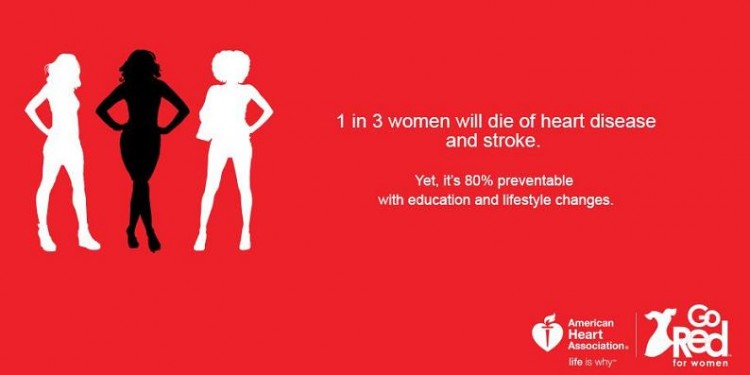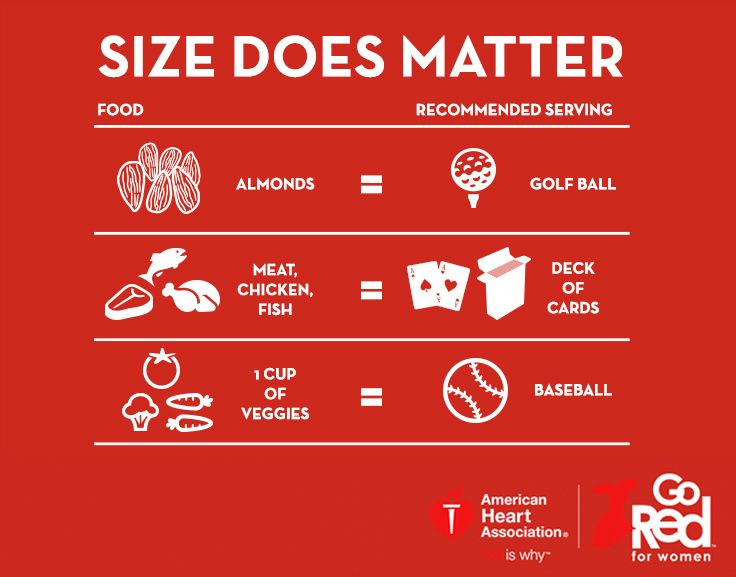Heart Disease in Women: Preventing Coronary Artery Disease

As American Heart Month comes to a close, Dr. Sraddha Prativadi discusses the modifiable risk factors for coronary artery disease in women, which is often preventable.
Raising Awareness Alongside the AHA’s ‘Go Red for Women’ Campaign:
One in three women will die from heart disease and stroke, leading other feared diseases like cancer in loss of life every year. February brings attention to the Go Red For Women campaign from the American Heart Association and the efforts to raise awareness of cardiovascular health issues in women.
Heart disease is an umbrella term
There are many types of heart disease but the most common (and preventable) type is coronary artery disease, or a thinning or blockage of the vessels that supply blood to the heart muscle itself. There also exist diseases of the heart valves and heart muscle itself but this month’s focus is on the modifiable risk factors for coronary artery disease.
Risk factors women should be aware of
There are a host of preventable or modifiable risk factors for heart disease in women. These include…
- Being over the age of 55
- Family history of heart disease or heart attack
- Obesity
- Diabetes
- Smoking
- High cholesterol
- High blood pressure
- Lack of exercise
Additionally, your age and family history are clearly not risks that you can change, however you can empower yourself to make positive lifestyle changes that will decrease the impact of the other risk factors.
Managing your weight is another significant way in which you can decrease your risks for heart disease. Being overweight or obese increases your risk for heart disease, high blood pressure and diabetes.
Smoking has been shown to increase a person’s chance of developing heart disease. So, exchanging those cigarettes for a gym membership or some other positive outlet is well worth the effort. Again, your physician can help assist and empower you with this process. Most of us are thrilled when a patient initiates this conversation herself.

Consider these risks & facts about heart disease when making lifestyle decisions. Source: Pinterest
Prevention is key
Prevention is better than a cure – this is most true with heart disease. As with most things in life, it is not the big, dramatic things that we do, but rather our small, consistent daily habits and choices that ultimately determine the trajectory of our cardiovascular health. It’s important to develop lifestyle habits that will help bolster your cardiovascular health, rather than set it back.
Make sure you have established an empowering relationship with a healthcare professional and discuss your risk factors for heart disease. Get your cholesterol level tested and make sure your blood pressure is in a normal range. Getting screening for diabetes is also important and your physician can work closely with you to decrease the impact of these risk factors.
Be proactive about modifying your lifestyle & habits
Empower yourself with action! Literally, action! Get moving and work your muscles and your heart. For example, the following steps can help prevent the onset of coronary artery disease in women:
- Exercise in your target heart range for 30-60 minutes daily.
- Go visit your doctor and have the important conversations about cholesterol, blood pressure and diabetes screening.
- Speak with your doctor about what you can do to quit smoking and decrease your weight.
- Observe a balanced diet with fruits, vegetables, heart-healthy proteins and good fats that will maximize your energy and strength.
- Having that supportive professional relationship will increase your chances of success in achieving your heart healthy goals.
Speak with your doctor to collaborate on a personalized action plan for preventing coronary artery disease – it’s never too late!

Be proactive about your diet & nutritional intake: Use this portion guide from the American Heart Association when considering your next meal. Source: Go Red for Women on Pinterest
A few personal musings & conclusions
With all this attention being paid to the heart organ, don’t forget about your heart from a metaphysical perspective. Are you living, working and breathing from your heart space? Are you doing what you love? Do you love yourself? Are you living a life of meaning and purpose?
As I get older, my fascination with the heart has transformed into one on the metaphysical plane. Is it important to tend to the heart not just in terms of the hardworking muscle that it is, oxygen, blood and various lipid study panels? Of course it is.
I believe people do die of a broken heart . . . or worse – living a less than fulfilling and vibrant life while not listening to one’s heart. Listen to your heart, or as is said in India “dil ki baat”, the speech of the heart, or “heart talk”.
Silencing one’s mind, self-judgement and need for external approval and getting in tune with your “dil ki baat” leads to a more authentic life that is filled with purpose, meaning and passion that will permeate all your activities and relationships.
How exciting this is when it is achieved in one’s life!! Find the love within yourself and love yourself first. And for those of you still searching for an external source of love and romance this month, I leave you with this beautiful poem from Rumi,
Ever since I heard my first fairy tale
I started looking for you
Not knowing how blind that was
Lovers don’t finally meet somewhere
They are in each other all along
– Rumi
Here’s to your heart health, physically, emotionally, and spiritually this February. Go Red for Women!
For more information on signs and symptoms of a heart attack & stroke and how to maximize your heart health, please visit the American Heart Association’s GoRedforWomen.org website and the American College of Obstetricians and Gynecologists’ Heart Disease and Women resource.
Featured Image Credit: Go Red For Women – American Heart Association



